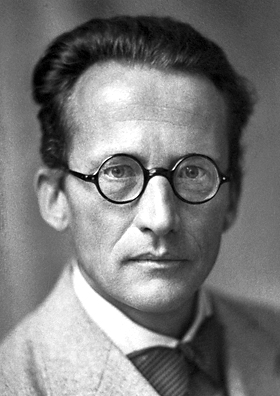173 years ago today, Issac Singer received his patent for the improved sewing machine, paving the way for his eventual invention to spread across the world. The biggest change was that Singer concluded, after being invited to look at some sewing machines at the business of a friend, that the sewing machine would be more reliable if the shuttle moved in a straight line rather than a circle, with a straight rather than a curved needle. READ what happened next… (1851)

In 1856, textile manufacturers Grover & Baker and Wheeler & Wilson, all began litigating along with Singer in court of patent infringement. Before things got to court however, one lawyer suggested that rather than wasting all their money on litigation, they pool their patents together—which they did—and it became the first patent pool in history.
That year, I. M. Singer & Co manufactured 2,564 sewing machines, quadrupling to 13,000 by 1860. Singer pushed hard, even through failure, to produce smaller sewing machines for use at home. He leveraged mass production and replaceable parts to drive down the outrageously-high cost of a home sewing machine, and by 1875, sewing guidebooks were being published for hobby sewing at home.
By the 1900s, one of Singer’s European factories controlled by the parent company, made 1.5 million machines that were sold around the world, helping the Singer company in becoming one of the first American-based multinational corporations, with agencies in Paris and Rio de Janeiro.
MORE Good News on This Day:
- The Peace protocol to end the Spanish-American War was signed (1898)
- The Wizard of Oz film starring Judy Garland was first previewed in two test markets – Kenosha, Wisconsin and Cape Cod, Massachusetts (1939)
- The first communications satellite, Echo I, was launched, and the following day the first two-way telephone conversation by satellite took place with microwave signals bouncing from one point on Earth to another (1960)
- The Beatles’ first film A Hard Day’s Night opened in 500 U.S. cinemas to rave reviews, with Time magazine later calling it as one of the all-time great 100 films (1964)
- Japan and China signed Treaty of Peace and Friendship (1978)
- The Space Shuttle Enterprise passed its first solo flight test by taking off atop a Boeing 747, separating and then landing in California’s Mojave Desert (1977)
- Swiss banks agreed to pay $1.25 billion as restitution to Holocaust survivors to settle claims for their assets (1998)
136 years ago today, Erwin Schrödinger, the father of quantum mechanics, was born in Austria. Schrödinger along with Paul Dirac won the Nobel Prize in Physics in 1933 for his work on quantum mechanics in the same year he left Germany due to his opposition to Nazism. In autumn 1922 he analyzed the electron orbits in an atom from a geometric point of view, using methods developed by the mathematician Hermann Weyl, in which it was shown that quantum orbits are associated with certain geometric properties. This was an important step in predicting some of the features of wave mechanics.

In January 1926 on wave mechanics and presented what is now known as the Schrödinger equation. In this paper, he gave a “derivation” of the wave equation for time-independent systems and showed that it gave the correct energy eigenvalues for a hydrogen-like atom. This paper has been universally celebrated as one of the most important achievements of the twentieth century and created a revolution in most areas of quantum mechanics and indeed of all physics and chemistry.
A second paper was submitted just four weeks later that solved the quantum harmonic oscillator, rigid rotor, and diatomic molecule problems and gave a new derivation of the Schrödinger equation.
Schrödinger is one of several individuals who have been called “the father of quantum mechanics”. The large crater Schrödinger, on the far side of the Moon, is named after him. The Erwin Schrödinger International Institute for Mathematical Physics was established in Vienna in 1993. (1887)
42 years ago today, the first IBM PC, one of the early personal computers, was released.
The development team broke all the rules within IBM and went to outside vendors for most of the parts and software, acting as an independent business unit. Praise was directed at IBM’s decision to use ‘open source’ software and hardware to encourage third-party development—to personalize every unit and end up with a lower price tag.

Costing $1,565, IBM called it a “mini-compact, at a mini-price,” saying it could “hook up to the home TV set, play games, and process text.” The New York Times said, “The speed and extent to which IBM has been successful has surprised many people, including IBM itself.” (1981)
33 years ago today, the most complete and best-preserved skeleton of a Tyrannosaurus rex ever found was uncovered in South Dakota.

It was named ‘Sue’, for the paleontologist, Sue Hendrickson, who made the discovery. The fossil was sold in 1997 for $7.6 million, the highest amount ever paid for a dinosaur fossil, and is now a permanent feature at the Field Museum of Natural History in Chicago, Illinois. (1990)
And, 55 years ago today, Jimmy Page, Robert Plant, John Paul Jones and John Bonham played together for the first time, in a room below a record store in London’s West End. The first songs they played were old blues tunes, The Train Kept A-Rollin, and a version of Dazed And Confused.

Jones recalled, “As soon as I heard John Bonham play, I knew this was going to be great… We locked together as a team immediately.” It was not until the following month that they started using the name Led Zeppelin and soon became the hottest and heaviest band of the 70s.
Their manager, Peter Grant, secured a phenomenal contract with Atlantic Records: $143,000 in advance royalties, one of the biggest deals of its kind for a new band; autonomy in deciding when they would release albums and tour; the final say over the contents and design of each album and how to promote each release, and which tracks to release as singles; their own company to handle all publishing rights.
One of the most innovative, influential, and successful rock groups in history (200–300 million LPs sold worldwide), the band’s fourth album features the song Stairway to Heaven. Among the most popular and influential songs in rock music, it helped secure the group’s popularity. Each of the band’s 9 studio albums reached Billboard’s top 10, with six reaching No.1 . WATCH a 5-minute history of the band… (1968)
And, Happy 74th Birthday to Mark Knopfler, the British singer-songwriter, guitarist, and co-founder of Dire Straits. They had the No.1 single in the U.S. in 1985 with Money For Nothing, and the No.2 UK single Walk Of Life. Their 1979 certified double-platinum debut album reached #1 on album charts in Germany, Australia, and France, and sold two million copies in the U.S. and four million in Europe.

Born in Glasgow, Scotland and raised in England, the 4-time Grammy winner has also produced albums for Tina Turner, Bob Dylan, and Randy Newman and is the composer/producer of nine film scores for movies like Local Hero, set in Scotland, The Princess Bride, and Wag the Dog, with Dustin Hoffman. Successful as a solo artist, Mark also graduated with an English degree from the University of Leeds.
His unique finger-picking guitar style, which earned him the #27 ranking on Rolling Stone’s list of 100 Greatest Guitarists, was a result of playing on a badly warped guitar neck that had been strung with extra-light strings to make it (barely) usable. It was the only way he could play it—and as a result, he said he ‘found his guitar voice.’
Originally inspired by his uncle Kingsley’s harmonica and boogie-woogie piano playing, Mark formed several bands in the 60s after being influenced by Elvis Presley, B.B King, Django Reinhardt, Hank Marvin, and Chet Atkins (with whom he made a 1990 Grammy-winning album called Neck & Neck). The 5th Dire Straits LP Brothers In Arms (which is the fourth best-selling album in UK chart history, with their biggest hits) was a worldwide blockbuster, contributing to the band’s total sales through 2009 of over 120 million records. WATCH one of the greatest love songs ever recorded—Romeo and Juliet— from their third album Making Movies… (1949)
SHARE The Milestones, Memories, and Music…




















[…] By Good News Network […]
[…] By Good News Network […]